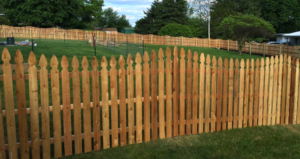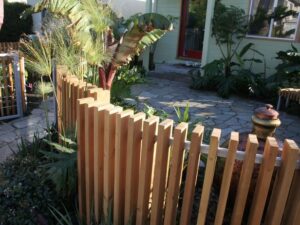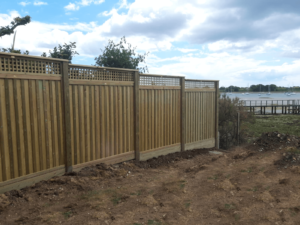Climates About Vacaville, California
Vacaville is a city located in Solano County in northern California, halfway between Sacramento and San Francisco. With its Mediterranean climate, Vacaville experiences warm, dry summers and mild, wet winters. This article will provide an in-depth look at Vacaville’s climate, including average temperatures, precipitation, seasons, and weather extremes. Insights into how Vacaville’s climate impacts daily life and tips for what to wear and expect during a visit will also be shared.
Vacaville’s Climate Characteristics
Mediterranean Climate
Vacaville has a Mediterranean climate, characterized by hot, dry summers and cool, wet winters. This climate pattern is driven by Vacaville’s proximity to the Pacific Ocean and the semipermanent high-pressure ridge offshore. The ocean moderates temperatures year-round, while the high-pressure ridge blocks rain-producing low-pressure systems in the summer.
Four Distinct Seasons
Vacaville experiences four distinct seasons:
- Spring – March to May; mild temperatures around 60°F and increasing rainfall
- Summer – June to August; hot, dry weather with highs near 90°F
- Fall – September to November; cooling temps, less rain, highs in the 70s°F
- Winter – December to February; colder with highs in the 50s°F and lows near 40°F, frequent rain
The seasons are marked by changes in precipitation and temperature.
Temperature Variations
- Daily: Vacaville has a diurnal temperature pattern, with daytime highs on average 30°F warmer than nighttime lows.
- Seasonal: Average highs range from 53°F in winter to 91°F in summer.
- Extremes: Vacaville has recorded temps as low as 18°F and as high as 114°F.
Low Annual Precipitation
- Vacaville receives an average of 24 inches of rain annually.
- 75% of rain falls between November and March.
- July and August are usually completely dry.
- Precipitation mainly comes from frontal systems in winter.
High Sunshine Hours
- Vacaville enjoys sunshine 80% of the year on average.
- The sunniest months are June through September.
- December and January have the fewest sunny days.
Vacaville’s Seasons
Spring
Spring in Vacaville brings increasing temperatures and sunlight.
- March – Highs in the mid 60s°F, lows in the 40s°F, 3 inches of rain. Plants begin blooming.
- April – Highs around 70°F, lows near 45°F, 2 inches of rain. Wildflowers peak.
- May – Highs in the upper 70s°F, lows 50°F, 1 inch of rain. Dryer and warmer.
Activities: Picnics, hikes, Earth Day celebrations
What to wear: Light jackets, layers, rain jacket
Summer
Summer is hot and dry in Vacaville.
- June – Highs in the 80s°F, lows near 60°F. Warm and mostly sunny.
- July – Hottest month! Highs in the low 90s°F, lows in the 60s°F. Zero rain likely.
- August – Highs in the upper 80s°F, lows in the lower 60s°F. Dry, sunny, and cooling off.
Activities: Water recreation, farmer’s markets, festivals, fairs
What to wear: Shorts, tank tops, swimwear, hat, sunscreen
Fall
Pleasant autumn weather arrives in Vacaville.
- September – Highs in the lower 80s°F, lows near 55°F. 1 inch of rain possible.
- October – Highs in the mid 70s°F, lows around 50°F. 2 inches of rain on average.
- November – Highs in the mid 60s°F, lows in the 40s°F. Increased rain, 4 inches typically.
Activities: Harvest celebrations, corn mazes, hiking, camping, football games
What to wear: Light jackets, jeans, boots, layers
Winter
Vacaville winters are cool and wet.
- December – Highs in the mid 50s°F, lows in the upper 30s°F. Increased rain, 5 inches on average.
- January – Coldest month. Highs in the lower 50s°F, lows in the mid 30s°F. 4 inches of rain expected.
- February – Highs in the mid to upper 50s°F, lows near 40°F. 3 inches of rain typical.
Activities: Cozy fires, winter walks, movies, skiing nearby
What to wear: Coats, sweaters, scarves, gloves, rainboots, layers
Weather & Climate Hazards
While pleasant overall, Vacaville’s climate brings some hazards:
Heatwaves
- Hot summer temperatures over 100°F are not uncommon.
- Heat advisory alerts are issued when forecast highs exceed 105°F.
- Extreme heat risks: dehydration, heat stroke, exacerbated medical conditions.
Drought
- Below average winter precipitation can lead to drought.
- Severe droughts occurred recently in 1976-77, 1987-1992, and 2012-2016.
- Impacts included water use restrictions and increased wildfire risk.
Flooding
- Heavy rainfall, especially atmospheric river events, can overwhelm storm drains.
- Historic floods in Vacaville occurred in 1986 and 1997.
- Flood risks include overflowing creeks, mudslides, and flooded homes/streets.
Freeze Events
- Hard freezes with temps below 28°F occasionally impact crops.
- Pipes may freeze and burst during winter cold snaps.
- Last freeze was in December 1990 when temps dropped to 18°F.
How Vacaville’s Climate Shapes Life
Vacaville’s Mediterranean climate influences various aspects of life:
Agriculture
- Warm, dry summers suit production of tomatoes, walnuts, fruits and melons.
- Cool winters allow for cooler season crops like broccoli, beets, and kale.
Recreation
- Pleasant weather year-round enables outdoor activities.
- Parks, trails and waterways provide recreation.
- Winter rains keep golf courses and fields green.
Architecture
- Summers are mild enough for lightweight construction.
- Few homes have air conditioning.
- Rain and sun often dictate design features.
Lifestyle
- Outdoor living is popular – patios, porches, BBQs, yardwork.
- Long growing season means robust farmers markets.
- Dry summers require wise water use.
Economy
- Agriculture, leisure and recreation shape the economy.
- Construction booms during dry seasons.
- Tourism peaks in warm, sunny months.
Environment
- Cool, wet winters support verdant landscapes.
- Hot, dry summers stress plants, increase fire risk.
- Native plants like oaks and buckwheat thrive.
What to Wear During a Visit
Vacaville’s climate varies considerably across seasons. Here are tips on what to wear during a visit:
Spring
Pack layers like light sweaters and jackets. Bring a raincoat and umbrella for potential showers. Warm clothes for evenings, but have short sleeves for daytime.
Summer
Very lightweight, breathable fabrics are key. Tank tops, shorts, skirts, short sleeve shirts will keep you comfortable. Don’t forget a hat, sunglasses and sunscreen for UV protection. Open toed shoes.
Fall
Fall days can be warm but it cools off at night. Pack jeans, light sweaters and bring a jacket. As rain returns, bring wet weather gear like an umbrella too. Close-toed shoes and boots.
Winter
Cold weather gear is essential. Pack heavy coats, waterproof boots, wool socks, hats, scarves and gloves. Have warm sweaters and long sleeve layers as well. Jeans or trousers will block wind.
Tips for an Enjoyable Vacaville Visit
- Hydrate and use sun protection in sunny, dry conditions
- Seek shade during hot afternoons
- Carry layers for temperature drops
- Have wet weather gear for rain events
- Check forecasts for heat or freeze advisories
- Avoid strenuous hikes on extremely hot days
- Savor cool evenings on warm summer nights
- Enjoy the sunny, temperate days year-round!
Conclusion
From sunny summers perfect for agriculture to wet winters that sustain the landscape, Vacaville’s Mediterranean climate shapes life in the city. While offering mostly pleasant weather, some climate hazards like heatwaves and flooding present challenges.
Understanding Vacaville’s climate provides helpful insights for planning activities, packing appropriately, and making the most of a visit any time of year. With some preparation for the conditions, Vacaville’s four distinct and moderate seasons offer ideal weather for enjoying the natural beauty and abundant recreation opportunities of this vibrant Northern California city.
Service Area
- Alamo Gardens (95687)
- Browns Valley (95688)
- Buckingham Estates (95687)
- Country Club Estates (95687)
- Elmira (95625)
- Foxboro (95687)
- Glen Eagle Estates (95687)
- Lakeview Estates (95687)
- North Vacaville (95687)
- Nut Tree (95687)
- Peabody Road (95687)
- Rural Vacaville (94533)
- South Vacaville (95688)
- Spring Valley (95696)
- Summerfield (95688)
- Trower (95688)
- Ulatis (95687)
- Vacaville Junction (95687)
- Vanden (95696)
- Vineyard Estates (95688)
Hours
Monday: 9:00 AM – 5:00 PM
Tuesday: 9:00 AM – 5:00 PM
Wednesday: 9:00 AM – 5:00 PM
Thursday: 9:00 AM – 5:00 PM
Friday: 9:00 AM – 5:00 PM
Saturday: 9:00 AM – 5:00 PM
Sunday: 9:00 AM – 5:00 PM
Contact Us.
Get Solutions For All Fencing Services
Every day from
9:00 — 5:00
Call to ask any question





